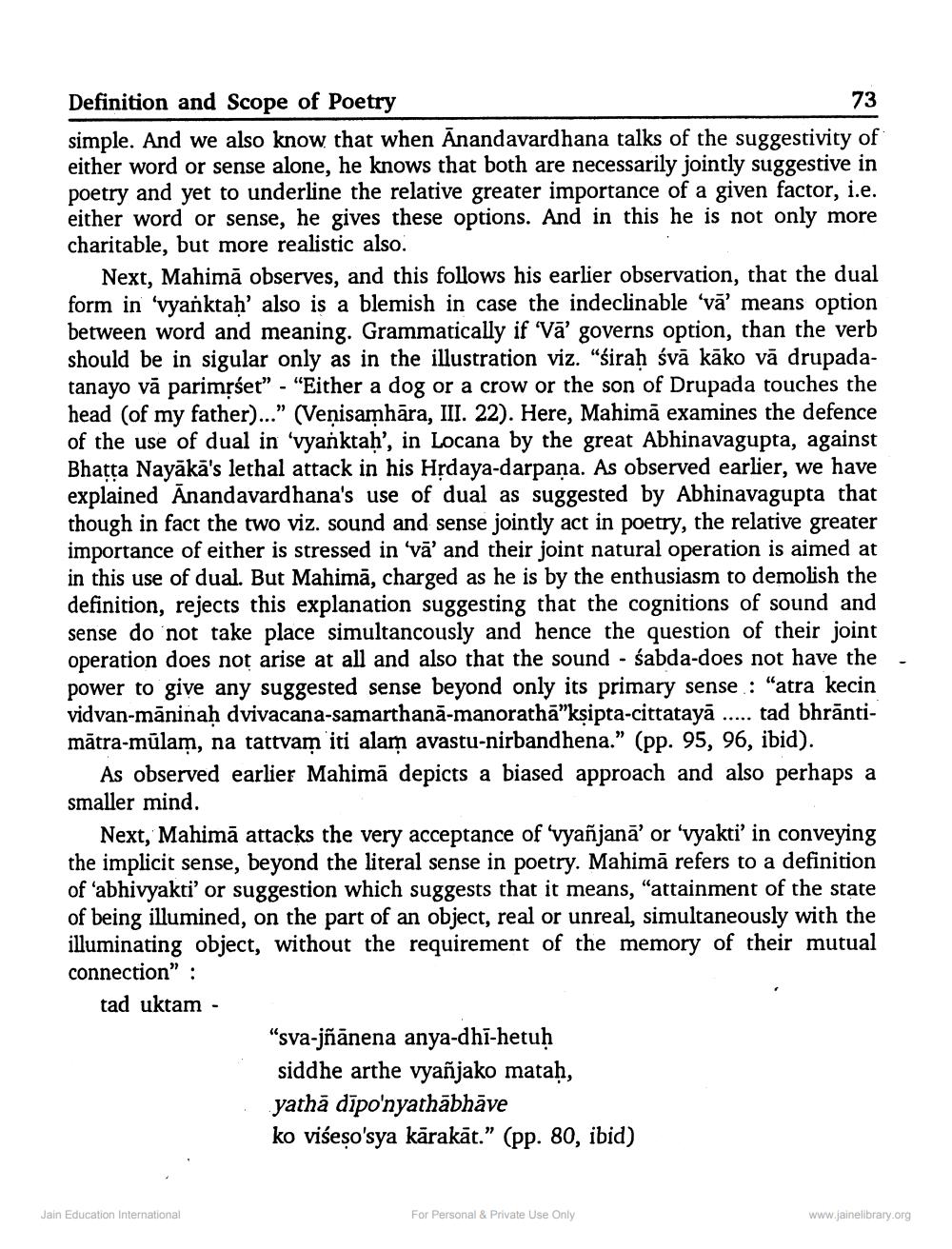________________
73
Definition and Scope of Poetry simple. And we also know that when Anandavardhana talks of the suggestivity of either word or sense alone, he knows that both are necessarily jointly suggestive in poetry and yet to underline the relative greater importance of a given factor, i.e. either word or sense, he gives these options. And in this he is not only more charitable, but more realistic also.
Next, Mahimā observes, and this follows his earlier observation, that the dual form in 'vyanktah' also is a blemish in case the indeclinable 'vā' means option between word and meaning. Grammatically if Vā' governs option, than the verb should be in sigular only as in the illustration viz. "sirah śvā kāko vā drupada tanayo vā parimrśet” - “Either a dog or a crow or the son of Drupada touches the head (of my father)...” (Venisamhāra, III. 22). Here, Mahima examines the defence of the use of dual in ‘vyanktah', in Locana by the great Abhinavagupta, against Bhatta Nayākā's lethal attack in his Hrdaya-darpana. As observed earlier, we have explained Anandavardhana's use of dual as suggested by Abhinavagupta that though in fact the two viz. sound and sense jointly act in poetry, the relative greater importance of either is stressed in 'vā' and their joint natural operation is aimed at in this use of dual. But Mahimā, charged as he is by the enthusiasm to demolish the definition, rejects this explanation suggesting that the cognitions of sound and sense do not take place simultancously and hence the question of their joint operation does not arise at all and also that the sound - śabda-does not have the. power to give any suggested sense beyond only its primary sense: "atra kecin vidvan-māninah dvivacana-samarthanā-manorathā”kşipta-cittatayā ..... tad bhrāntimātra-mūlam, na tattvam iti alam avastu-nirbandhena." (pp. 95, 96, ibid).
As observed earlier Mahimā depicts a biased approach and also perhaps a smaller mind.
Next, Mahimā attacks the very acceptance of vyañjanā' or 'vyakti' in conveying the implicit sense, beyond the literal sense in poetry. Mahimā refers to a definition of 'abhivyakti' or suggestion which suggests that it means, “attainment of the state of being illumined, on the part of an object, real or unreal, simultaneously with the illuminating object, without the requirement of the memory of their mutual connection" : tad uktam -
"sva-jñānena anya-dhi-hetuḥ
siddhe arthe vyañjako mataḥ, yathā dīpo'nyathābhāve ko viseșo'sya kārakāt.” (pp. 80, ibid)
Jain Education International
For Personal & Private Use Only
www.jainelibrary.org




